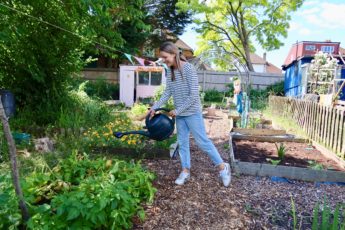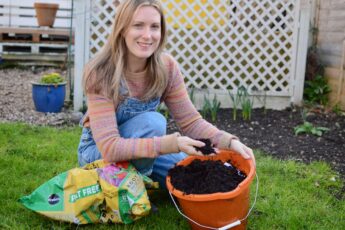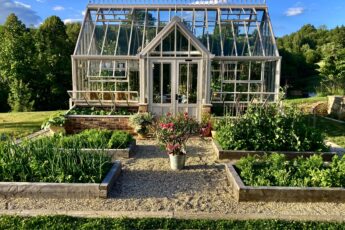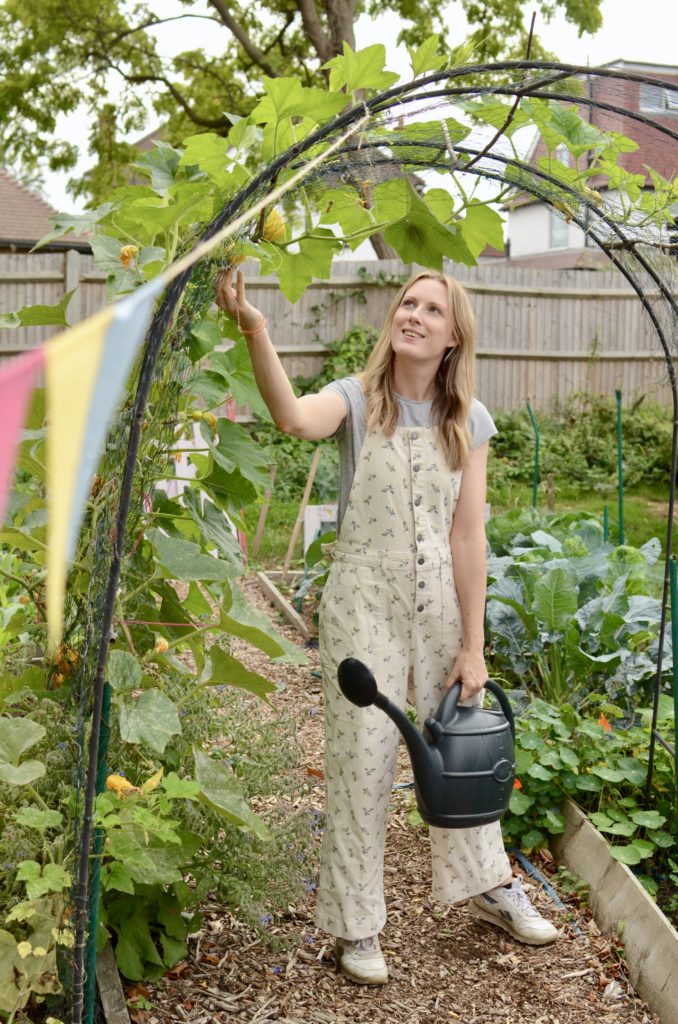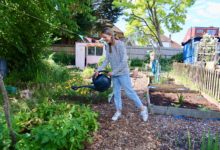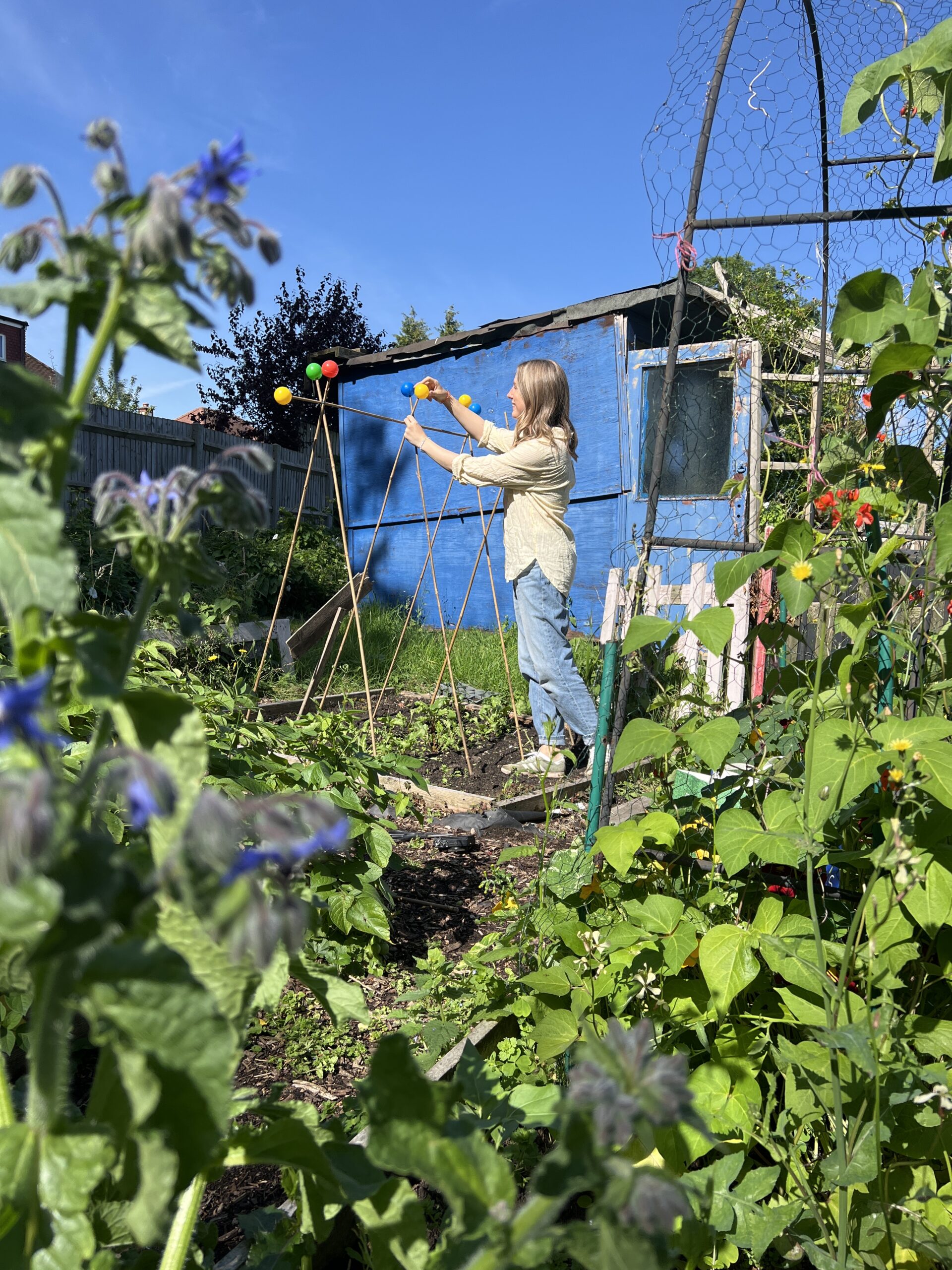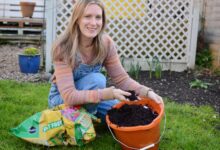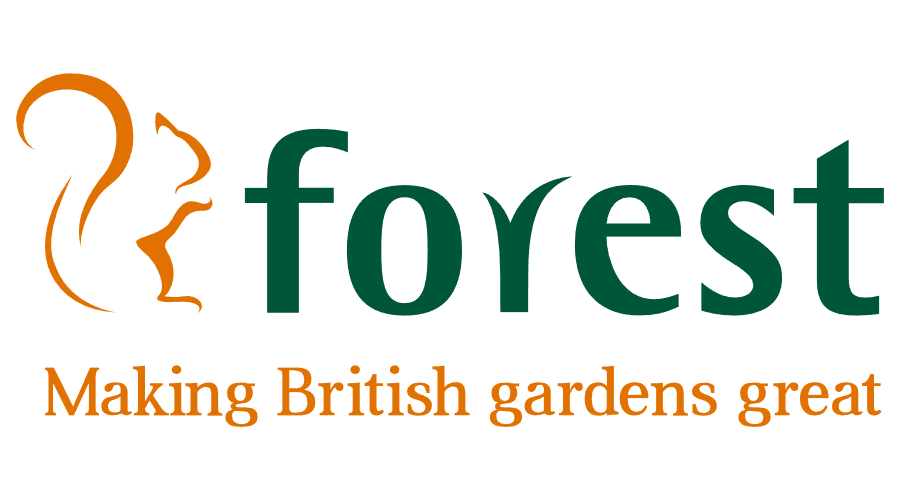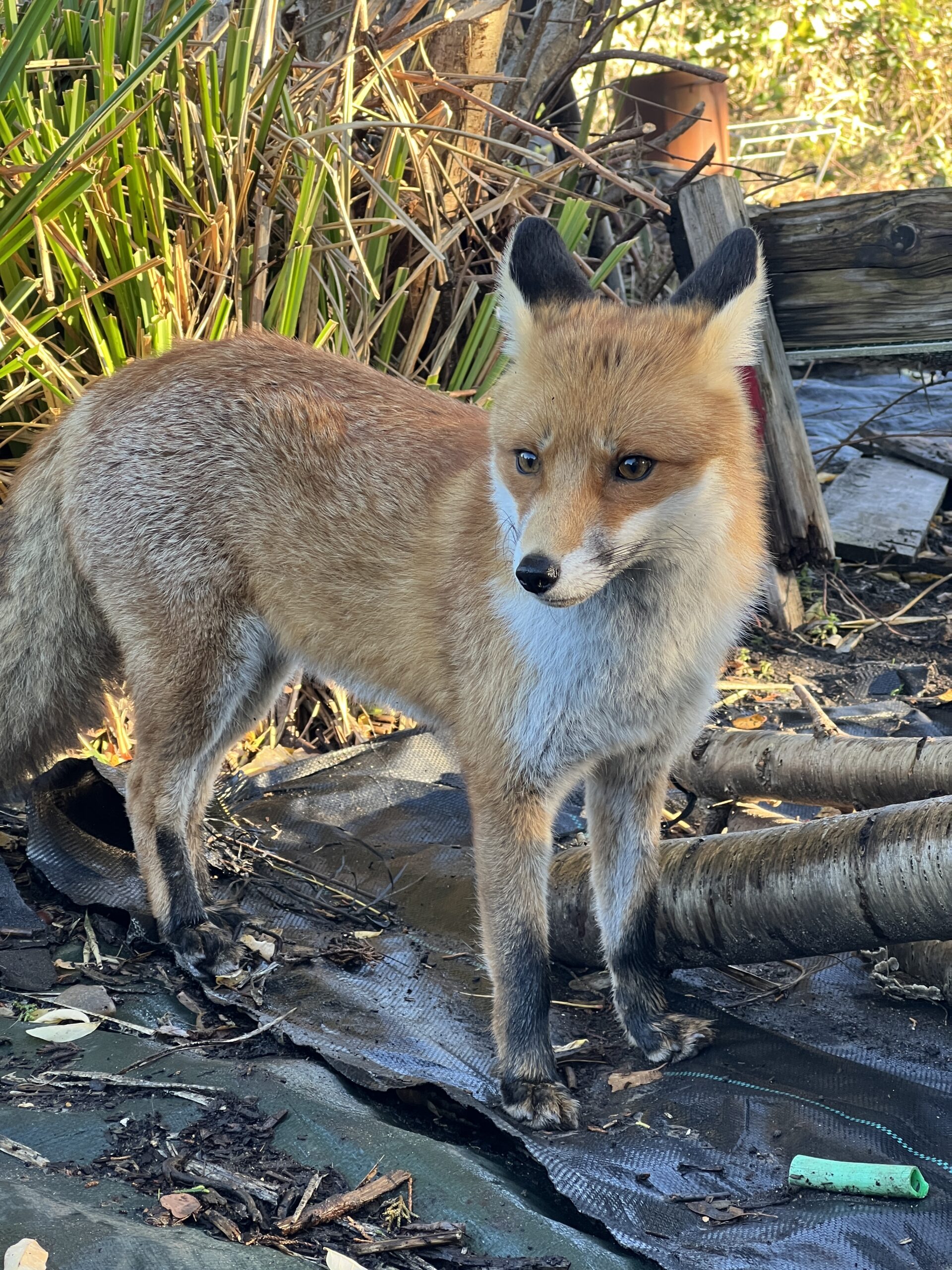
We moved house shortly after I got my allotment plot. It’s a Victorian terrace and required a lot of time and money to fix it up. I was a little worried it would begin to encroach on the time I could spend at the allotment plot, which was also still in need of so much work itself. But I suppose my love of gardening and my need for that space was so great, I prioritised it, finding time to work on both the house and plot and still somehow feed and bath my children everyday.
There’s a saying that goes something like, “If you do something you love, you’ll never work a day in your life”, and I think it applies here. A lot of people would have looked at my little piece of land, at the patch of mud and half dug out Blackberry bush canes and see it as this enormous burden. But even when life was at it’s most hectic, I never once saw the plot as that. It was always this shining little beacon of hope, patiently waiting for me to come and bring it to life, just as I had to those pots in the rented garden.
Of course, renovating a house had many advantages for the plot in the form of discarded wood. Ask any allotmenter about their most treasured finds for their plots and most will tell you about something they pulled out of a skip. Us allotmenters cannot get enough of skips. We’re the wombles of the modern day world, scavenging all we can and giving old things new purpose.
Our house gave me a lot of old floorboards and other planks of wood that I quickly took to my plot to make raised beds out of. Once 4 wonky, slightly badly nailed together beds were erected, I felt like my dream plot was once again coming together. I was conquering nature, one step closer to having my haven become a reality. It felt good.
It was January now and the allotment site was empty of humans. It became a familiar and comforting routine to venture down to the empty plot after dropping my children at school each morning and I looked forward to my outdoor endorphin hit. The frozen blackberry canes that laid stewed across my plot crunched deliciously under my feet and I continued to rake, dig and clear as much as I could.
My rake hit the ground hard and I pulled it back to gather a pile of small twigs and leaves, revealing the frozen but excitingly promising ground beneath it. As I put my head up, I noticed a creature gazing at me from behind my neighbouring plots shed. A large menacing looking fox was glaring over at me, his expression as frosty as the ground he stood upon.
At first I thought he was looking for a squirrel, or waiting for an opportunity to sneak past me. But no, he was looking directly at me, his gaze constant and ominous.
This wasn’t the first time I’d seen a fox before. London is infamous for it’s so called ‘urban foxes’, often spotted at night rifling through people’s rubbish bags on the hunt for a discarded donut. They’re seen as a nuisance, screaming out into the night when children are trying to sleep and leaving a trail of destruction for us humans to clear up the next morning. Sometimes you see one in the day, usually a cub who has perhaps been abandoned or is not yet accustomed to the rules of the fox community. These are subject to the stares of us humans, as we tut and sigh, silently cursing these creatures for daring to show their faces in a time meant exclusively for humans.
The allotment fox was different. I felt a strange twist in the hierarchy between us. Sure, I was a human and it was daytime, two facts that should have held me in good stead for this encounter. However, I was on his territory now. I was the intruder, I had ventured into enemy territory and this fox wanted to know why. Why I was here at his place of sanctuary? Why I was raking away the remains of his shelter?
Such was the intensity of his glare, I found myself retreating back home, unable to continue in my allotment mission. I felt victimised. This fox had shaken me to the core, taken away my superior right as a human, something I had held onto rightly or wrongly for so many years. There were different rules on the allotment plot, a different hierarchy. Humans were not the dominant species here, and that fox had made that very clear to me.
Maybe it’s all in my head. Maybe I’m just distorting a memory to fit my own narrative. Maybe that fox had simply poked his head round the corner in an innocently curious sort of way. The truth is, it doesn’t really matter what the fox was or wasn’t thinking because it’s what it made me think that’s important. The world is what we believe it to be. I believe that fox was a catalyst for the slow but powerful change in my attitude and beliefs about nature and my place within it.
As my plot grew and inevitably evolved over the year, empty raised beds became an abundant of greenery. Vegetables wound their ways up trellis’s and burst out of their compounds like water boiling over a pan. The fox began to return to my plot more and more frequently, like a moth to a flame. Digging up my beetroot, toppling rickety bamboo canes and once even burying my hat.
I saw him as a nuisance, calling him out as a ‘bloody fox’, which seemed a fine name to hand down to the little bugger. He was a menace I got used to dealing with and would look out for the damage he’d caused on each visit to the plot. I filled in holes, rebuild knocked down structures and tried to remember not to leave any gloves or hats lying about, which he obvious had some sort of personal vendetta against.
The fox, the fox, the bloody fox. What damage has he caused today? What bed did he go for a recreational dig in that night? I hadn’t seen him in the flesh since he’d stared me off my plot in January, but his presence was always felt. This invisible entity, out to annoy and destroy.
And then suddenly, one day there he was again. I caught sight of him lurking around my neighbours plot. I found myself calling out to him, demanding to know his intentions with my plot. I was acting like a mad person. Talking to this creature as though it could understand me. Had anyone caught sight of me, they would have swiftly turned in the opposite direction. My arms were waving about frantically, my voice seething with anger at the lack of control I had over this creature. I danced from foot to foot, attempting to frighten him away.
He watched me, his head tilted slightly, perhaps in amusement. I stopped and stared back at this fox, my aggression floating away from me as I peered into his eyes. At first I thought I had lost my mind, too much sun perhaps. But as we looked at each other, there was this strange sense of acceptance on both our parts. The fox would keep returning and I would keep doing damage control, and this was the way it was and would remain.
As he turned and skulked away to damage some property or whatever it is fox’s get up to in the day, and I heard myself saying goodbye to him. “Bye then!” I called. “See you next time.”
It was another lesson from the plot. The plot wasn’t mine. Sure, I paid for it, I was the owner on paper, but it didn’t belong to me. It belonged to nature, to the fox, to the insects and the wildlife who had been using it for many years before. It wasn’t up to me to order eviction notices to any animal daring to trespass upon my land, because the land wasn’t mine to begin with. There was a new set of rules here, a stark change of roles from what I had been used to before. My role as plot holder wasn’t to chase wildlife away, but to accept it, facilitate for it, even welcome it!
The fox had become my frenimy and my annoyance of him became a habitual set of rituals I would play out each time I found his damage. A tut at a hole in the pathway, a roll of the eyes at a nibbled pot, a sigh at another structure he’d pulled down in order to reach a bird that was perched on the top. These things still bothered me, but they became strangely comforting. The Fox had taken on a symbolic role at my plot, a constant and comforting reminder of my place there. He kept me in check, made sure I didn’t get too big for my boots and every time he visited, I felt a little sense of relief that I hadn’t done anything to put him off.
As long as the bloody fox kept showing up, my plot was still a sanctuary for wildlife.


